 W
WA suicide car bombing occurred on Easter Day church services in the Nigerian city of Kaduna on 8 April 2012, targeting Christians. At least 38 people were reported dead. Suspicion fell on Boko Haram, the radical Islamist sect blamed for hundreds of killings in the country in 2012 alone.
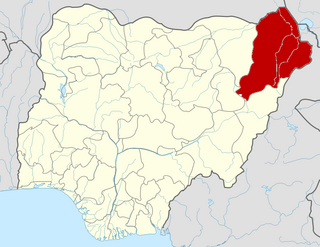 W
WOn the evening of September 20, 2015, a series of bombings took place in Maiduguri and Monguno, Nigeria, killing at least 145 people and injuring at least 97 others. The majority of casualties occurred in Maiduguri where four explosions killed at least 117 people.
 W
WOn February 9, 2016, two female suicide bombers affiliated with Boko Haram detonated their explosives killing more than 60 people and injured 78 others at a camp for displaced people in Dikwa, Nigeria. Officials said five suicide bombers had infiltrated the camp disguised as refugees with two of them, both women between the ages of 17 and 20, setting off their bombs as refugees were queuing for rations. A third bomber refused to kill herself after entering the camp and discovering her relatives were there, while two others also refused to set off their vests and escaped the camp.
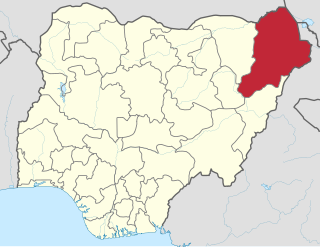 W
WAt about 5pm on 6 January 2020, a bomb exploded at a market in Gamboru, Borno State, northeastern Nigeria. The market is located on a bridge which connects Gamboru to Fotokol, Logone-et-Chari, Far North Region, Cameroon. The bombing killed 38 people and injured over 35 others. No group claimed responsibility. Boko Haram often carry out attacks in the region, their insurgency having caused over 35,000 deaths since it began in 2009.
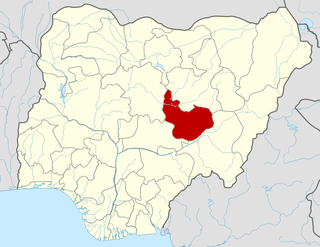 W
WOn 20 May 2014, two bombs exploded in Jos, Plateau State, Nigeria, killing at least 118 people and injuring more than 56 others. The first bombing occurred in a marketplace, and the second near a bus station. Though no group or individual has claimed responsibility, the attacks have been attributed to Boko Haram.
 W
WBetween 23 and 25 June 2014, a series of attacks occurred in central Nigeria. On 23–24 June, gunmen attacked a number of villages in Kaduna State, killing around 150 people. The attack was blamed on Fulani tribesmen. On 25 June 2014, a bomb exploded at the Emab Plaza in the national capital of Abuja, killing at least 21 people. In response to the bombing, the Nigerian military raided two militants camps on 26 June, killing more than 100 people.
 W
WThe 2014 Kano bombing was a terrorist attack on November 28, 2014 at the Central Mosque in Kano, the biggest city in the mainly Muslim Northern Nigeria during the Islamist insurgency in Nigeria. The mosque is next to the palace of the Emir of Kano, Muhammad Sanusi II, Nigeria's second most senior Muslim cleric, who had urged the civilians to protect themselves by arming up against Boko Haram. Two suicide bombers blew themselves up and gunmen opened fire on those who were trying to escape. Around 120 people were killed and another 260 injured.
 W
WThe Kawuri massacre happened on 26 January 2014 in Kawuri, a village in Konduga Local Government Area, 37 kilometers southeast of Maiduguri in Borno State, northeastern Nigeria. About 50 insurgents attacked civilians with bombs and guns. They burned down houses and kidnapped women. The final death toll was put at 85.
 W
WOn the evening of 16 June 2019, three suicide bombers detonated their explosives in Konduga village in Borno State, Nigeria, killing 30 people and wounding over 40. The first bomber targeted football fans who were watching a game on television in the hall. He was blocked from entering the hall by the owner. A heated argument ensued, during which the bomber detonated his explosives. This attack was the most deadly suicide bombing in 2019 in Nigeria. Soon after, the other two - both of whom were female - blew themselves up nearby.
 W
WOn 22 March 2017, at approximately 4:30 a.m, a series of bomb blasts occurred in three locations in the Muna Garage area of Maiduguri, Borno State, northeastern Nigeria. The blasts occurred at the Muna Garage internally displaced persons (IDPs) camp.
 W
WDuring the early evening of 23 February 2021, Boko Haram militants fired a series of rocket-propelled grenades in Maiduguri, Borno State, Nigeria. The attacks killed at least 10 people; many others were injured.
 W
WOn the evening of 1 June 2014, a improvised explosive device was set off at a football field in Mubi, Adamawa State, Nigeria. At least 40 people were killed in the attack, according to eyewitnesses. Nineteen others were injured. The perpetrators of the attack were not clear, although media reports generally blamed Boko Haram.
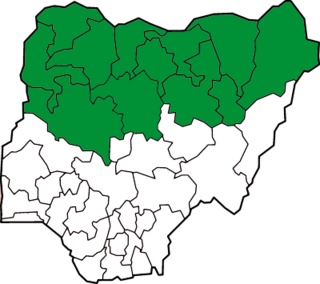 W
WA series of attacks occurred during Christmas Day church services in northern Nigeria on 25 December 2011. There were bomb blasts and shootings at churches in Madalla, Jos, Gadaka, and Damaturu. A total of 41 people were reported dead.
 W
WOn 14 April 2014 at about 6:45am, two bombs exploded at a crowded bus station in Nyanya, Nasarawa, killing at least 88 people and injuring at least 200. The bus station is 8 km southwest of central Federal Capital Territory.
 W
WOn 1 May 2014, a car bomb exploded in New Nyanya, a town in Nasarawa State, Nigeria. The explosion killed at least 19 people and injured at least 60.
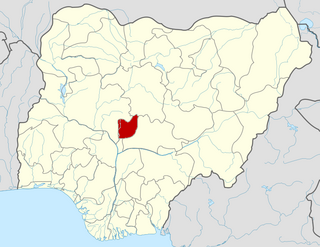 W
WThe Wuse bombing was a terrorist attack on the Emab plaza in Wuse, a district of Abuja, the Federal Capital Territory (FCT) of Nigeria.